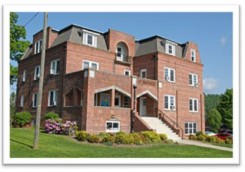In this article Sarah interviews Ann Fessler, the author of “The Girls Who Went Away.”
“In the decades between World War II and Roe v. Wade, 1.5 million young women were secretly sent to homes for unwed mothers and coerced into giving their babies up for adoption. Now their stories are finally being told.
“Nobody ever asked me if I wanted to keep [my] baby, or explained the options. I went to a maternity home, I was going to have the baby, they were going to take it, and I was going to go home. I was not allowed to keep the baby. I would have been disowned.”
— Joyce
It was the 1960s and Joyce was going to beauty school in Florida when she realized she was pregnant. When her mother found out, Joyce says, she was “dumped” at a Salvation Army Home for Unwed Mothers in Alabama. “It was an old, old, old house with big rooms,” she remembers now. “[And] I had no control … It was like being in a car wreck or something. Once you start skidding, that’s it. [So] I kind of skidded through it.”
Joyce is just one of more than a million and a half women who were sent to maternity homes to surrender their children for adoption in the decades between World War II and the passage of Roe v. Wade in 1973. They were college freshman working their way through school with two jobs. They were tomboys, sorority girls and valedictorians. They were mothers and they were invisible.
But now, artist and writer Ann Fessler has uncovered their hidden stories. The result of years of research and more than one hundred interviews, Fessler’s new book, “The Girls Who Went Away: The Hidden History of Women Who Surrendered Children for Adoption in the Decades Before Roe v. Wade,” is an astonishing oral history that brings to light the dark undercurrent of life in America’s postwar middle class. Denied adequate sex education, shamed by socially conformist parents and peers, and without legal access to abortion, Fessler’s subjects emerge as the victims of a double standard that labeled them promiscuous while condoning the sexual adventures of their male counterparts.





Recent Comments